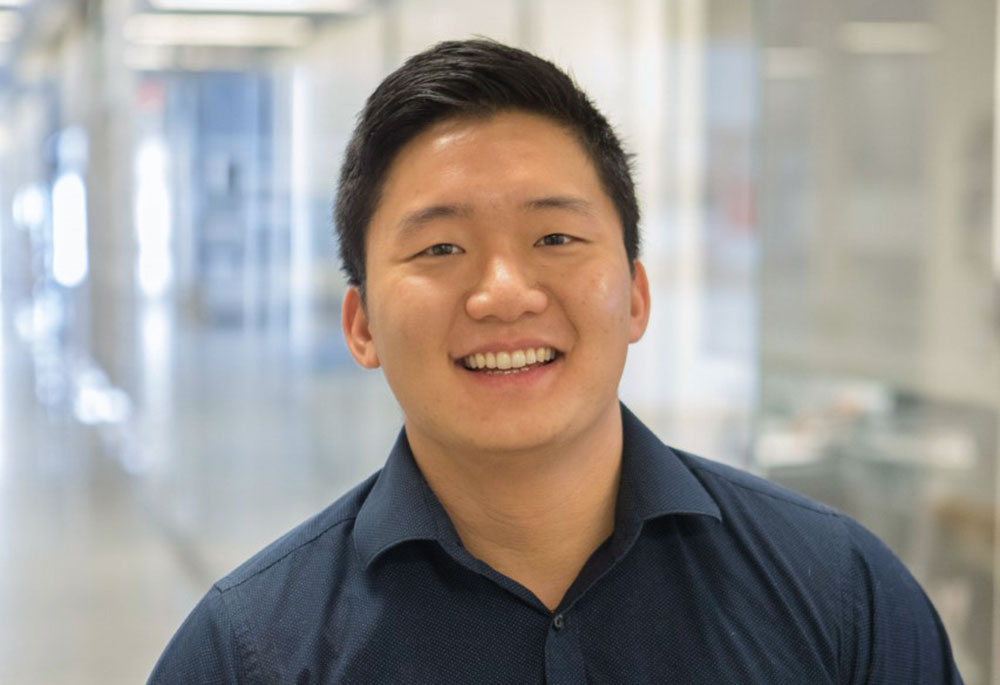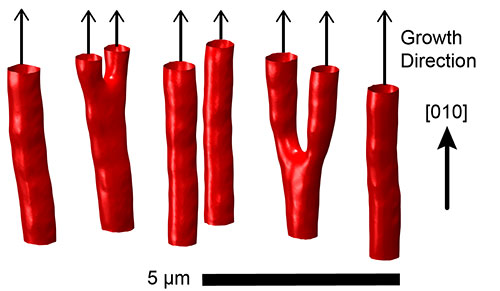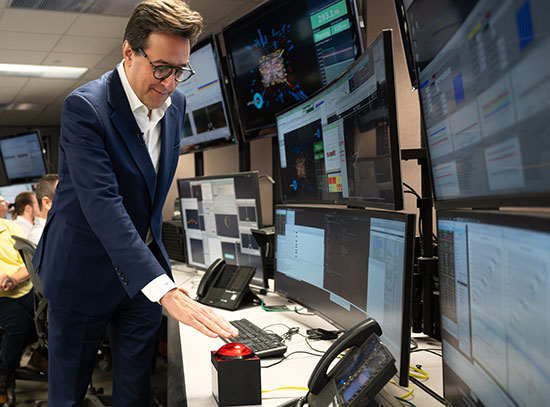Paul Chao Receives DOE Office of Science Graduate Student Research Award
The award will fund a full year of research into metal alloy crystals at NSLS-II
March 1, 2022
Paul Chao, a Ph.D. student at the University of Michigan, has been selected as one of just 65 recipients of the U.S. Department of Energy’s (DOE) Office of Science Graduate Student Research (SCGSR) award. The funds will allow him to spend calendar year 2022 at the National Synchrotron Light Source II (NSLS-II), a DOE Office of Science user facility located at Brookhaven National Laboratory, where he will continue and expand his thesis work into an intriguing class of metal alloys.
NSLS-II hosts nearly 2,000 scientists each year. These visiting researchers travel from around the globe to use NSLS-II’s ultra-bright x-ray beams to tackle some of the greatest research challenges in materials science, life science, and beyond. NSLS-II offers an extensive suite of research tools and techniques to enable the study of a wide variety of samples, from cell proteins to new materials for quantum computers.
The SCGSR program provides awards to graduate students to pursue part of their thesis research at a DOE laboratory or facility, focusing on areas that address scientific challenges that are in line with the Office of Science’s mission.
Chao’s research centers on the study of eutectic alloys, which are mixtures of metals that have melting points lower than any of the individual components. Their thermal and electric behavior makes them suitable for a variety of potential applications, from soldering to electronics to plumbing.
At the University of Michigan, under the guidance of Assistant Professor Ashwin Shahani in the Department of Materials Science & Engineering, Chao has been studying the solidification and crystallization behavior of a eutectic alloy composed of aluminum/nickel alloy rods embedded within an aluminum matrix. His research has focused on how the disordered liquid state of the alloy gives way to solid ordered patterns. This work is aligned with one of the preferred research directions set forth by DOE: to better understand crystal growth and formation in advanced materials.
“This award will greatly enhance my thesis as I take a very close look at these intertwined crystals with the advanced tools available at NSLS-II,” said Chao.
At NSLS-II, Chao will take advantage of the facility’s x-ray imaging capabilities. In collaboration with beamline scientist Xianghui Xiao, a member of the NSLS-II Imaging & Microscopy group, he will work to visualize the solidification of the alloy structure using a technique called transmission X-ray microscopy (TXM). TXM will allow him to study and measure the crystals that form within the alloy in real time, in 3D, and with resolution at the nanoscale. He will perform this work primarily at the Full Field X-ray Imaging (FXI) beamline.
His analysis will also, crucially, incorporate new data science and machine learning methods. This two-pronged approach will bridge two emerging areas of research: observing crystal growth in real time and using new software tools to analyze massive datasets. The goal is to create an intentional, informed pathway to the development of complex, multiphase materials that have unique mechanical or electrical properties.
“I will work closely with leading scientists at Brookhaven to test our hypotheses regarding the formation of these unique microstructures,” said Chao. “It is the opportunity of a lifetime, and I look forward to tackling these challenging problems and contributing to the DOE’s mission of developing materials for our future.”
Chao is one of a handful of students across the country who have had the opportunity to perform research at NSLS-II via the SCGSR award program, which began in 2014.
"This award provides NSLS-II with yet another way to engage the scientific community and train the next generation of scientists, who will tackle the big challenges in research," said NSLS-II Deputy Director for Science Qun Shen. "We are delighted to host Paul and are excited to see what his work reveals about these advanced alloys."
Brookhaven National Laboratory is supported by the U.S. Department of Energy’s Office of Science. The Office of Science is the single largest supporter of basic research in the physical sciences in the United States and is working to address some of the most pressing challenges of our time. For more information, visit https://www.energy.gov/science/.
Follow @BrookhavenLab on Twitter or find us on Facebook.
2022-19434 | INT/EXT | Newsroom











